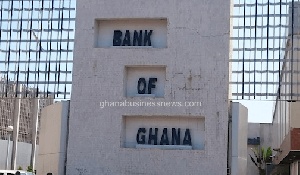- Home - News
- Elections 2024
- News Archive
- Crime & Punishment
- Politics
- Regional
- Editorial
- Health
- Ghanaians Abroad
- Tabloid
- Africa
- Religion
- Photo Archives
- Press Release
Politics of Wednesday, 4 June 2025
Source: www.ghanawebbers.com
Energy levy bill is unfair to Ghanaians – ICEG
The Institute of Climate and Environmental Governance (ICEG) has rejected the Energy Sector Levy (Amendment) Bill, 2025. They urge Parliament to dismiss this proposal. ICEG calls it “regressive, unjust, and deeply unfair.” The bill proposes a GH¢1 levy on every litre of petroleum product purchased.
On Tuesday, June 4, ICEG released a statement expressing their displeasure. The bill is currently before Parliament under a certificate of urgency. It aims to raise revenue to settle Ghana’s energy sector debt and improve power supply. However, ICEG believes this burden falls unfairly on ordinary Ghanaians.
Kwesi Yamoah Abaidoo is the Policy Lead for Climate Finance and Energy Transition at ICEG. He stated, “This move is unjust and deeply unfair to Ghanaians.” He acknowledged the need for energy sustainability but emphasized that it should not harm citizens.
ICEG argues that issues in the energy sector arise from poor leadership. They cite bad power purchase deals, mismanagement, and heavy subsidies as key problems. Abaidoo warned that the levy would increase fuel prices. This would negatively impact transportation costs, food prices, and inflation.
The organization believes this will worsen poverty and deepen inequality among low-income households. Instead of the levy, ICEG calls for a complete rethink of how Ghana addresses its energy challenges.
They recommend renegotiating power purchase agreements and reforming ECG operations. Additionally, they advocate for promoting renewable energy sources. Transparency in managing energy funds is also crucial.
ICEG pushes for an independent audit of all ESLA receipts since 2015. They propose establishing an independent Energy Sector Stabilization Authority as well.
Abaidoo advised that the government should engage in broader stakeholder dialogue. This should include civil society organizations (CSOs), consumer groups, and private sector actors to find sustainable solutions.
He concluded with a message to legislators: “We urge Parliament to consider the current economic burdens of Ghanaians.” He stressed that energy security must be based on fairness and sustainability—not more taxes on struggling citizens.











